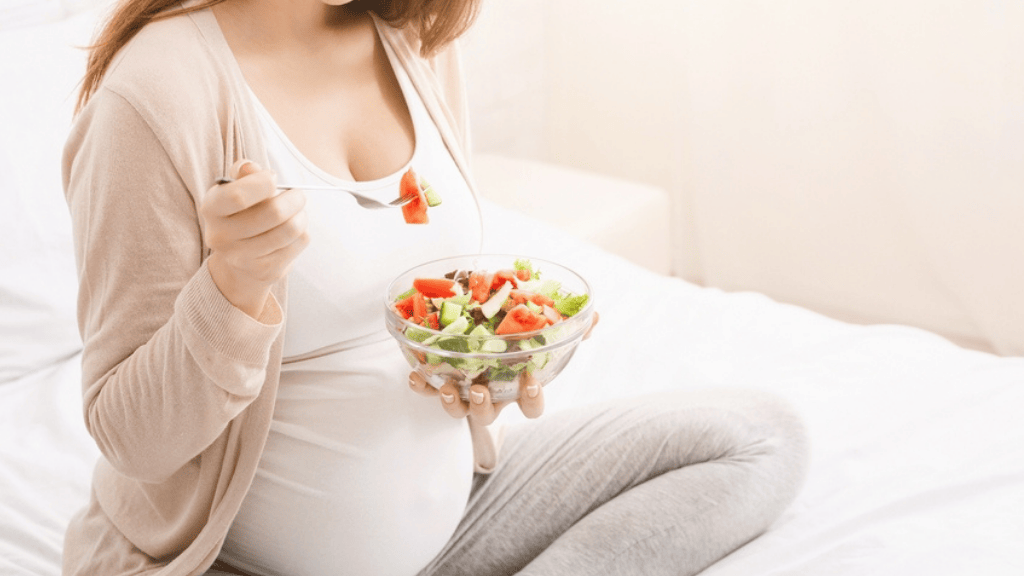Nutrition during pregnancy is an essential aspect that directly influences the health of mother and baby. From the moment the first symptoms of pregnancy appear, such as nausea, breast tenderness or fatigue, many women begin to wonder what changes they should make in their diet and how to adapt to the nutritional needs of this new stage.
At Ginelux, our specialized gynecology and maternity center in Las Palmas, we accompany our patients throughout the entire process, from planning to postpartum. A healthy diet during pregnancy is a powerful tool to promote proper fetal development, reduce common discomforts such as gas in pregnant women and minimize associated risks such as toxoplasmosis.
Before pregnancy: preparing the body to conceive
Good nutrition should begin even before becoming pregnant. In this preliminary phase, it is advisable to go to a pregnancy consultation to assess the general state of health and plan the most appropriate diet.
At Ginelux, we recommend that women who wish to become mothers adopt a diet rich in:
- Folic acid, key to prevent fetal malformations.
- B vitamins, iron and zinc, which improve fertility and strengthen the immune system.
- Healthy fats, such as omega 3 present in oily fish and nuts.
This preventive approach is part of our integral accompaniment. You can learn more about how we do it in our center in this article: Ginelux, your private maternity center in Telde, Gran Canaria
During pregnancy: eating better, not twice as much
During pregnancy, the body undergoes constant changes. Throughout the weeks of pregnancy, caloric and nutritional needs vary, so it is important to adapt the diet progressively.
Dietary guidelines in pregnancy
- Eat five to six meals a day to maintain stable energy levels.
- Prioritize fresh, natural and unprocessed foods.
- Increase consumption of fruits, vegetables, legumes, whole grains and high quality proteins.
- Drink enough water to promote digestion and prevent fluid retention.
Foods to avoid during pregnancy
There are certain foods that are forbidden during pregnancy that should be known to reduce risks:
- Raw or undercooked meats (due to risk of toxoplasmosis).
- Unpasteurized cheeses and uncooked sausages (due to risk of listeriosis).
- Large fish such as bluefin tuna or swordfish (high in mercury).
- Raw eggs and homemade unpasteurized sauces.
- Excessive caffeine and, of course, alcohol.
Avoiding these products not only protects the baby, but also helps the mother to feel better during pregnancy, avoiding discomfort such as insomnia or digestive disorders.
Common ailments and how to prevent them with diet
Some discomforts such as gas in pregnant women, insomnia or constipation can be alleviated by following a balanced diet adapted to each stage of pregnancy. For example, opting for light foods at night can improve rest. Including fiber and fluids in the daily diet can prevent constipation, while avoiding carbonated drinks and heavy meals helps reduce bloating.
After pregnancy: recovery and breastfeeding
Nutrition does not stop being important once the baby is born. Postpartum, especially during lactation, the body needs additional nutrients to produce quality milk and recover from the physical exertion of childbirth.
During this stage, it is recommended:
- Follow a diet rich in iron, calcium and protein.
- Avoid restrictive diets if you are breastfeeding.
- Maintain good hydration to promote milk production.
In addition, many mothers continue to experience hormonal changes, feelings of fatigue or difficulty sleeping. Proper nutrition during the postpartum period can be a great support in this process of physical and emotional recovery.
Trust your gynecologist in Las Palmas
Every woman experiences her pregnancy differently. That is why, at Ginelux, maternity clinic in Las Palmas, we offer personalized support from the very first moment. Our medical team will guide you on pregnancy nutrition, solve your doubts about early symptoms, forbidden foods and will guide you step by step through each phase. Whether you have just confirmed your pregnancy or you are looking for specialized advice, we are here to help you.
Do you have doubts about what to eat during your pregnancy or when to ask for a consultation? You can contact our team directly and schedule your appointment here: Ginelux contact form.
Frequently asked questions about nutrition in pregnancy
What are the forbidden foods in pregnancy?
During pregnancy you should avoid raw meats and fish, unpasteurized cheeses, uncooked sausages, alcohol, excessive caffeine and large fish such as swordfish, due to their mercury content.
What can I eat if I have gas during pregnancy?
Avoid flatulent foods such as legumes, cabbage or carbonated beverages. Prefer light meals, rich in fiber and water. Eating small meals a day also helps to improve digestion.
What are the first food-related symptoms of pregnancy?
Many women experience nausea, changes in appetite, aversions to certain smells or cravings. These may appear as early as the first weeks of pregnancy.
How does toxoplasmosis affect pregnancy and how is it prevented?
Toxoplasmosis can cause complications if transmitted to the fetus. To prevent it, avoid eating raw meat, wash fruits and vegetables thoroughly, and wear gloves if handling dirt or kitty litter.
What to do if I have insomnia during pregnancy?
Adopt a relaxing night routine, avoid heavy dinners and reduce exposure to screens. Consult your gynecologist in Las Palmas or in your city if insomnia persists.
When should I go for a pregnancy consultation?
The ideal is to go as soon as you suspect you are pregnant or at the appearance of the first symptoms. At Ginelux, your gynecologist in Las Palmas will accompany you from the very first moment with a personalized follow-up plan.



